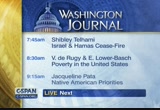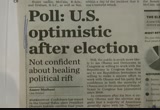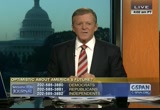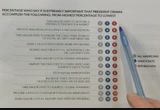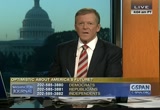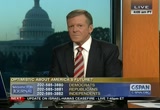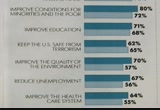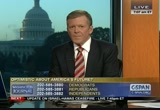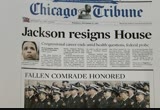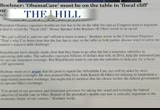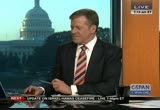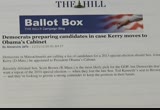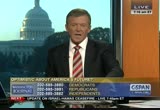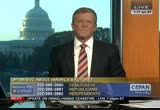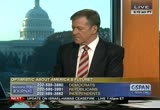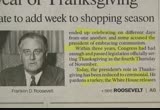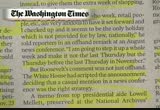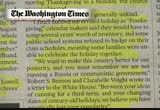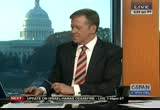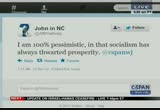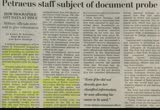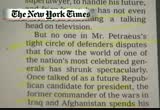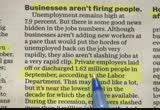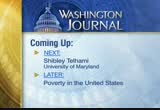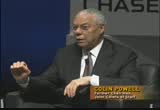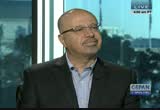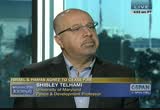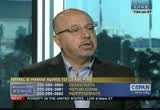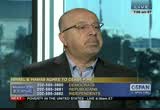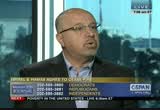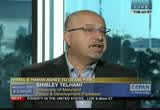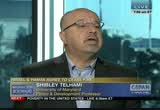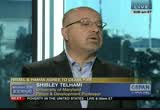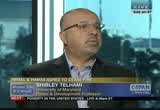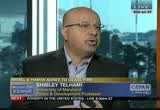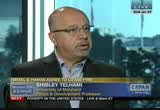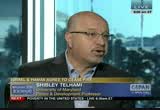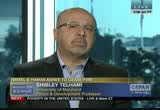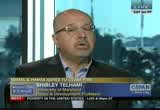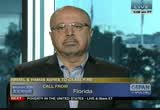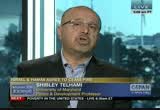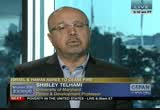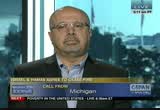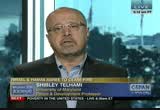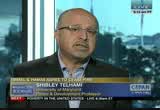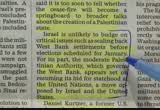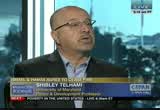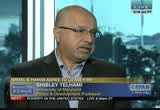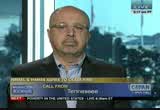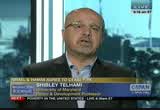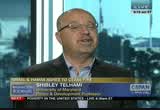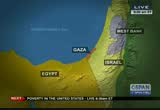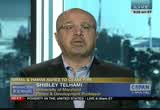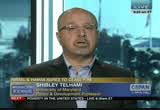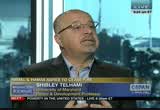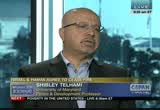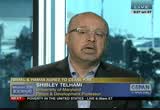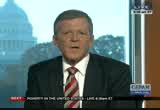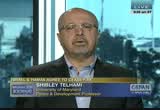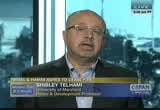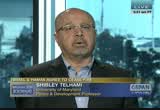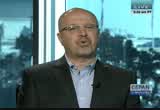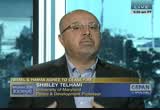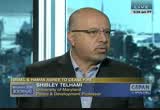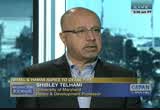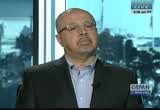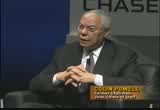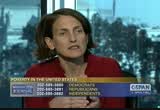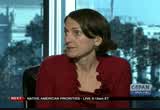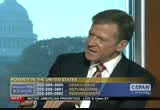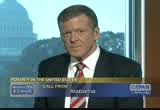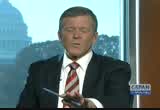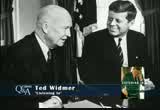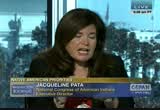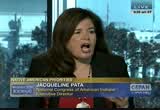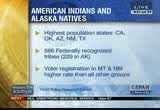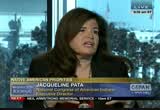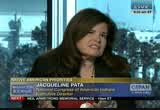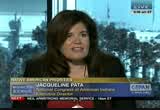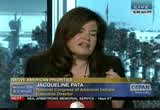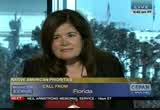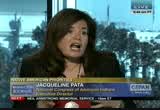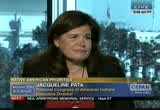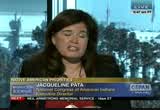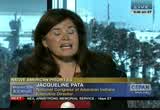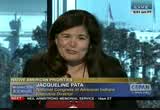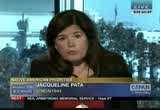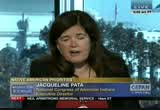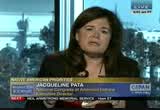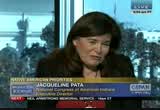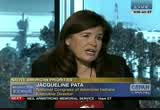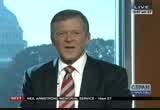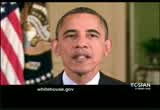tv Washington Journal CSPAN November 22, 2012 7:00am-10:00am EST
7:00 am
a.m., a look at poverty in the united states. then the parties and [laughter] >> congratulations. ♪ host: cobbbler and gobbler were pardoned by the president yesterday. according to wikipedia, the turkeys are raised in the same fashion of turkey's designed for slaughter. because most are bred and raised for size at the expense of long
7:01 am
life, they are prone to health problems associated with obesity. most of the pardon turkeys have very short lives and frequently die within a year of being pardoned. here is an article that was in ."a today postco post here are some of the results of that poll that we want to show you. in november to the us and 8, do you think the country will be better off or worse off for years from now? -- in november 2008, do you think the country will be better off or worse off four years from
7:02 am
now? 54% said better off. 41% said worse off. the pessimism has grown but overall americans are optimistic about the future and the next four years. that is what we want to ask you about. are you optimistic about america's future? of course, you can contact us via social media. our twitter handled is @cspanwj. another question that was asked in both 2008 and 2012 --
7:03 am
this year, 69% said americans are divided, 29% said united. a few more of those results. this is the percentage of americans who think it is extremely important that president obama accomplished the following. across the board, all americans in gray, democrats in blue, republicans in red. number three, for all
7:04 am
americans, second for democrats, and four four republicans. make major cuts in federal spending came in at number 5 for all americans. those are some of the results of the poll that was taken november 9 through 12 this year by gallup. are you optimistic about america's future? a majority of americans are optimistic. we are going to begin with a frome call from paul on orlando. caller: happy thanksgiving. if the petersons are watching, happy thanksgiving to them. peter, the pie chart that you showed a second ago where the majority of americans are optimistic -- that is who we are. we are an optimistic bunch of people whether we were born and
7:05 am
raised here or not. i think the reason 41% of us are not is because of the quality of leadership. both republicans and democrats. the president promised transparency. the republicans promised certain wisdom when it comes to the economy. unfortunately, and it has not just been this term or last term. this has been going on for a number of years which i think speaks to why we need term limits. host: a few more of the poll results from gallup and "usa today." the dark blue is from 2008, the light blue is from 2012. bring troops home from
7:06 am
afghanistan. improve conditions for minorities and the poor. improved education. keep the u.s. safe from terrorism. the quality of the environment. reduce unemployment dropped from 67% to 56%. improve the health care system dropped from 64% to 55%. to go over to the budget, substantially reduce the budget deficit. 42% thought the obama administration would be able to do that in 2008. avoid raising taxes. control illegal immigration.
7:07 am
heal political divisions in this country. 54% thought so in 2008. bob in north carolina on are democrats' line. you are up next. caller: i just think it is going to be better coming up this next time because i believe obama it did need a second chance. i voted for him. i am a native american and i lived on a cherokee indian reservation. we have to balance our budget. our leaders serve four years just like the president does. we make our budget work. if we don't have the money, we don't do it. that is all i got to tell you. host: jacqueline pata is going
7:08 am
to be on later in this program. how would you describe the conditions where you live? caller: we have a heritage casino down here and it does a lot for us. we send all of our kids to college. we pay for it all. they can go to college anywhere in the united states. host: indian gaming has helped urination? caller: very much. host: are independent line, you are up next. what is your optimism level? caller: i am not optimistic. indian gaming is not very good for our nation. hispanics -- i don't know why they are considered a minority. they work really hard. we have hispanics, blacks,
7:09 am
homosexuals, anti-god people against the rest of us. i am tired of giving my money away. i have watched the value of my dollar go to heck. when i was a kid, gas was 29 cents a gallon. come on. it is terrible. i am a mechanic. host: how is business? caller: i work for my church so i stay busy. i am lucky because i got a really good job. host: what is osb? caller: it is like plywood, pressboard made out of trees. this election made me sad. i thought we would go in the other direction and start putting people to work. why do we have millions and
7:10 am
millions of illegal immigrants here doing jobs? if you go to a burger king, it is all mexicans. host: not feeling too optimistic about america's future right now. here is a headline from the "chicago sun-times." here is the "chicago tribune" this morning. and this is part of jesse resigning.'s letter from office.
7:11 am
7:12 am
7:13 am
host: where did you come up with 69% caller: i am from neward, new jersey. we depended on my husband working. i am working with the preschool. my son now is a police officer in atlanta, georgie. i am visiting them for vacation. my kids have done a very good deed for the country because they are five productive citizens that i have raised beign an immigrant that came from a foreign country and married an american citizen from georgia. we did pretty good with our children. today, i believe that citizens be working and be a part of
7:14 am
america, raising. so it's better for thier children and grandchildren. host: that is claire resident atlanta from newwark, new jersey. ohio on our republican . this is james. caller: good morning. yes, i am optimistic for the united states. i and a registered republican. i voted for president obama. i have no faith in the people that the republicans chose. host: that is james. this is from "the hill"
7:16 am
that is just a little bit of the analysis about this seat. some of the names that are mentioned include state treasurer steve grossman and former mayor scott lang. those are just some of the names that dimension for the massachusetts seat. our next call comes from david in illinois on our independent line. hi, david. caller: hello. i am not too optimistic about our country. i think if the american people actually worked for a living, we stand up and have a revolution to take this country back.
7:17 am
i just want to welcome the rest of the country. i am from illinois. host: what does that mean? color code just the corruption, high taxes, everyone is -- caller: just the corruption, high taxes, everyone is on welfare. illinois has been a mess. host: where are you from? caller: we are surrounded by caterpillar. host: what kind of work do you do? caller: construction. business is all right because i am a christian and i get a lot of business through christian families and churches, a lot of
7:18 am
employment through that. the only faith i have is through jesus. host: tim in beaver falls, pa.. what is your optimistic level? caller: it is really high now, peter. it was not high before the election because i live in western pennsylvania. the hatred i hear around here is pretty amazing. i was scared because everyone i and around hate obama for no reason. there is no evidence, like they watch fox news all day and then just spit it back out. i felt like i was on the wrong planet or something. basically, i like to know the truth about things. i watch you guys all the time.
7:19 am
thank you for that. it is a wonderful thing that you guys are doing. i don't know. i was really depressed. i even talked to my daughter about it. she is 37 and the republican. i will watch her kids anytime she wants to vote because that is important to me. everybody. i was just scared because i am surrounded by people who were talking that way. 1 obama won, i was wrong. it is going to be ok. we are not going to be a big business country or a union country. we are going to be a country about the american people them that i thank god things worked out the way they did. host: this is the front page of "the washington times."
7:23 am
republican from washington, maine. what is your optimism level for america? caller: good morning. the day after the election, i thought it was a very sad day for our country. i am a christian. i compare the morals of the two men. i am very strong in my belief against abortion, the marriage issue. the top of the list would be the economy and the morality for my children, grandchildren, and great grandchildren. i don't see this country doing better in the next four years. i fear we may slide even further backward. i'd just pray that all of our leaders, republicans and
7:24 am
democrat, will start looking at the bible and seeing what god wants them to do and it just be better men and women. that is basically my views. happy thanksgiving to you. host: the front page of the orange county registry this morning. one gentleman here is thankful for work. family is another one. someone here is thankful that the election is over. the internet. food and xbox. family, jobs, health. that is the front page of "the orange county register." cdog tweets in he is thankful for football today than ther.
7:25 am
some of the tweets we have received on optimism. donna is optimistic. here is chris in bama. finally, john says -- terry from mich., the independent line. good morning. caller: good morning. i am calling from michigan. for people who are looking for work and for a really nice place to live safe from storms nad things like that, come to michigan because we are looking
7:26 am
for people to work especially if you are in engineering. there are calls everywhere for people to come here and find work. i think in the next year or so, there are going to be hard times perhaps the there is going to be something uplifting about them, too. because everybody will have to work together to make things continue to get better. so, come to michigan. a couple of people talked about transparency and the government. i don't know. maybe it is just me. transparency has done very little good as far as i can see. i think it was better when people met behind closed doors, battled it out, and then came
7:27 am
out smiling and holding hands giving their final ideas. host: with all that said, what is your optimism level customer caller: i am very optimistic. we are a wonderful country. we will come back. we are on our way back already. host: are you optimistic about the auto industry up in michigan? caller: yes. little companies coming back, too, because of the car industry. we are seeing signs here, all over the place now, "help wanted" from little places and things like that. we are on our way. host: houston, texas, a democrat. caller: good morning. i am very optimistic about the future.
7:28 am
7:29 am
7:32 am
that is "the new york times." reporting on general petraeus. our republican line from florida, what is your optimism level? caller: first of all, i am a snowbird from west chester, pa ennsylvania. host: i am going to put you on hold. you are breaking up. i think your cell phone coverage or your connection is not that good. the producer will get on the line with you.
7:33 am
daniel in louisiana, the independence line. caller: hello and thank you for taking my call. i am very optimistic and very happy that obama won. i believe the country is going to move forward. he is not going to let the partisanship bring down this country. i always tell people how i came to this country when everybody was talking about reagan. how the deficit was going so much that our grandchildren would have to pay for it. then bush came in and this is the problem we have. i am also concerned about the people who call themselves christians.
7:34 am
when you hear them talking, they are more hateful than any other human being. i am very optimistic about this country. host: where are you from originally? caller: i am from nigeria. host: carol, try again. caller: i am very optimistic. host: i am so sorry. that is just too painful to listen to with that scratchy in there. ralph in florida, the republican line. good morning. this is the "washington journal ." caller: i am not optimistic at all. we have a lame duck president. i did not vote for him. this is just foolish. he is destroying our society.
7:35 am
host: how so? caller: well, gee -- obamacare? that is a joke been betting that is destroying jobs. i had great insurance long before he came into office. guess what? employers cannot afford to employ me any more. i made great money. now it is like, ok, i will take a menial job. there are no more menial jobs out there anymore, and obama is just sending them overseas. host: in "the washington post," -- household debt is way down after peaking at the start of 2009.
7:36 am
7:37 am
about the state of our economy and their future. when i read about the entire presbyterian church, the methodist church, the evangelical lutheran church wanting to end all relationships with the state of israel, i think our country -- we are literally being occupied by a foreign government by the state of israel. i have to tell you, when you look at the economic apartheid on wall street where the american people are treading on one platform while the zionist regime in control of our country is trading, we are becoming a nation that is completely and utterly occupied. host: that was patrick from pennsylvania. hi, judy. caller: hi. i just want to say that my
7:38 am
husband dave and i are very optimistic about the future. we are happy that the president won. our concern -- your last caller was talking about religion and the churches. we don't see why they should be playing a part in our government and big we are concerned about the separation of church and state. we are also concerned about the racial hatred that is going on, especially in florida. that is a concern because we live with that. i think a lot of it stems from fox news and too many people like rush limbaugh. free speech is great but when it goes into hate speech and misinformation, we would like to see maybe the fcc come down harder on organizations like that.
7:39 am
people who listen to this need to know that it is not even news. they were lied to and misinformed. i think that is why you have some many people stunned right now at the election results. host: this is ted from oregon on the democrats' line. what is your optimism level? caller: good morning, peter. host: happy thanksgiving to you. have you retired yet? caller: i am looking at the calendar this morning. i have nine months, five days, and a wake-up. host: awesome. you are doing a young. caller: i am going to bail the day i turn 55.
7:40 am
there are a lot of people here to celebrate thanksgiving in their vacation homes. yesterday, i went to a gated community and i did a seven-hour job for people who were very professional and very nice. this morning, i have a big ocean both and i am going to throw some crab pots in the river. i am going to take those crabs to them this morning for thanksgiving. i just enjoy working as a plumber for people who enjoy my skills and my 30 years and experience. i just want everybody to have a good thanksgiving and a good life. i am just thrilled that we were able to get joe walsh from illinois out of the house of
7:41 am
representatives and adam west out of the house of representatives. when i think of mitch mcconnell four years ago saying his job was going to be sure that president obama was a one-term president, that did not work out and they are you going to do your job or do we need to replace you? have a great day. host: that was ted about to go crab fishing. here is "the washington times."
7:42 am
7:43 am
steve is in arizona on our republican line. steve, good morning. you are on the "washington journal." what is your optimism level? caller: i am pretty optimistic. i hope both sides do something about the fiscal cliff. i hope they can find a place to meet in the middle. i think that should be our biggest worry. we have been talking about the national debt for years now. i sure hope they do something. what is your optimism on that? host: more important to hear what you think. what do you do? caller: i am the karaoke king.
7:44 am
host: do you saying it or do you have a service? caller: i am a disc jockey, sing, and do impersonations. i provide karaoke for people's birthdays, weddings. check out my web sites. you can sing for free on that web site. host: karaokeking.com. what is the most popular song that people request in karaoke? caller: i think everybody likes -- a lot of people like that song by david alan cole, "you never call me by my name." host: thanks for calling in this morning. trenton, new jersey, on our independence line.
7:45 am
caller: good morning. i am optimistic about the future of the united states. we have come through some difficult times in the past, and history has a way of repeating itself. we certainly do not have the problems that other countries do have. your earlier viewers mentioned maybe the media, how some tuen tne to fox. if you want to look at the country from the outside, you will have a better chance of understanding the problems that we do have. callers have mentioned religion. faith input your the government, you are going to be let down. you should put your faith in
7:46 am
your church and in your home. not in the ballot box. 125% after world war ii. it is not even close to that right now. we will tighten our belt straps. living off of food stamps. there is always a job. it is the resiliency of the individual. going back to school with the g.i. bill. i love this country and i think it is going to be around for a lot longer after item dead. host: a final article that we want to show you about osama bin laden's burial.
7:47 am
coming up, we're going to be looking at the issue of poverty in the u.s. on this thanksgiving day with a couple of guest. we will also be looking at native american issues. coming up next, shibley telhami from the university of maryland to help us walk through what is going on in the middle east right now and then we will be right back. ♪ >> the name of this place still resonates with the shattering in
7:48 am
the hearts of the american people spending more than any other name connected to the civil war. gettysburg reverberates. what happened here was the crux of our terrible national trial. americans know that all the glory and the tragedy that we associate with the civil war presides most indelibly here. >> tonight at 8:00 p.m. eastern, steven spielberg on the battle of gettysburg and abraham lincoln's legacy on c-span3. >> you officers, you changed this army so it became a volunteer army then they go and find your soldiers in the towns of america. we did that. we created an absolutely splendid force of young men and
7:49 am
women who were willing to serve their country as volunteers and they had the same tradition, the same culture, the same loyalty and dedication than anas any other generation that had gone before them bank they prove themselves in the last 10 years in iraq and afghanistan. the same we have to keep in mind is something that president lincoln said. to care for those who have borne the battle. to care. tha tmeans that never forget that they are carrying the american spirit, carrying the american traditions with them. when they get injured, hurt, or come back to be reintegrated, we have to be waiting to care for them. not just the federal government or the veterans administration, but fellow citizens. >> more about the treatment of
7:50 am
veterans with colin powell tonight on c-span at 8:00 p.m. eastern. impact onlywood's american culture. later, paying homage to the first man to walk on the moon neil armstrong. >> "washington journal" continues. host: now from the university of maryland, doctor shibley joins us.n i want to start with the debut headlines in two different papers. this is "the washington post." and "the new york times." what has been the role of the president? guest: good morning to you and happy thanksgiving to you and
7:51 am
the audience. this has been his moment, no question, since he has been president. on the one hand, he and his public and his party, the muslim brotherhood, our allies of hamas which is an offshoot of the muslim brotherhood. on the other hand, he does not want to be dragged into a conflict with israel. he wants to protect the peace treaty. certainly he does not want a crisis to dictate his priorities. he has the most to lose if there was a ground war. in the process, he built a working relationship with the u.s. you have to credit president obama for understanding this opportunity. if the israelis even had any gain at all in this operation, it is principally really in the
7:52 am
relationship with egypt. this was a relationship that was not defined. they were worried about deterioration. this crisis enabled them to create a link where egypt now is part of a deal, one that is supposed to be an enforcer of a deal. stature hashis risen. host: have they had direct contact? guest: i am not aware of any because the president has avoided that. the israelis typically even in negotiations, day-to-day negotiations, the egyptians subcontractor these issues mostly to the intelligence services. hosni mubarak did that as well.
7:53 am
it was not even a foreign ministry issued. i doubt there was any contact. if you look at what happened with hamas itself, when you look at the war itself, clearly, hamas paid a heavier price. israel's power is massive compared to hamas. hamas fired a lot of rocket, but if you look at the casualties, you have the five israelis dead and over 1000 injured total. what hamas wanted to call a balance of fear. civilians are terrified and they are sleeping in bunkers. israeli kids and families are
7:54 am
also fearful. that did not translate obviously into an asset for them and the military because obviously they were hurt. not only did israel to assassinate the head of the military and a lot of other operatives and clearly it destroyed quite a few of the military assets, but the political leadership on the outside emerged as a winner. particularly their political chief. when you look at the whole picture, hamas had been somewhat marginalized in the global arena. the u.s. considers it a terrorist negotiation and did not negotiate any way. who or the egyptians negotiating with? who are the israelis negotiating with? who is reaping the benefit
7:55 am
customer who is sitting with the president of egypt? it is the head of hamas. that marginalized the head of the hamas authority. one reason why the secretary of state ended up going their last- minute was to bolster -- visit him because no one was paying him visits. he was not in the picture. secretary clinton went htere. talked to him and so fort. clearly, hamas politically emerges as the winner. clearly in our public opinion, emerges as a winner even though they paid a heavy price.
7:56 am
as usual, the heaviest price is paid by civilians. host: what is the relationship between them? guest: obviously, they have been separated. in 2007, there was a split. there has been a split between the palestinian authority and the west bank and gaza. they have been competing for popularity within the palestinians. hamas says we have to negotiate or find a peaceful way to do it. mahmound abbas has not gain that much to tell the palestinians, "come and see it my way." hamas, through using arms,
7:57 am
clearly is trying to project itself as being in a better position to win this. theoretically, they are supposed to be negotiating coming together including with egypt. one of the things they said they would do including hamas said this would be an opportunity for us to come together, but the split between them is very deep. host: how did this latest conflict began? why did it start? guest: look, if you ask me as a student of this conflict, i look at it as a macro level. when i look at the structure of this, you have gaza, mostly made up of refugees from 19408, and a small enclave.
7:58 am
double the size of the district of columbia. about 1.8 million people. it is isolated. it has been under siege. the westtgaza and bank have been under illegal occupation since 1967. so, from my point of view, between that and the israeli security, it was only a matter of time. these things are cyclical. they are going to happen. as long as you do not have a lasting peace, it is unnatural. whether it is going to happen from gaza or the israeli side, or i think it could even happen in the west bank and bank i am not sure that you can count on peace in the west bank.
7:59 am
the bottom line is the situation is a natural. on the ground what happened in the past few months is there has been a cease-fire between israel and hamas. it has been a little more complicated. one factor is hamas was not having as much control over the fringe groups that were firing on israel any way. israel was retaliating. hamas holding fire for a while. it is being taunted by a lot of other people who are more extreme asking why don't you retaliate. in the end, they did. they carried out some operations that is released say as an an escalation. they assassinated a military head of hamas.
8:00 am
that was probably the thing that made it almost unstoppable, that you then get into a cycle of escalation. then the israelis had the sense that they have to reestablish deterrents. when they fire. you have to punish them multiple times. so the ratio of casualties is always in favor of the israelis. when a happens. and all that creates a cycle that gets the international community trying to stop it. if you would like to speak with about the middle east, longtime student of the middle east, he has been in for a good guest on the washington journal. he is joining us this thanksgiving.
8:01 am
202-585-3880 for democrats. 202-585-3881 for republicans. 202-585-3882 for all others. here is an article in de "new york times." the relationship between the two leaders has come a long way in just 10 weeks. but in days past, obama found in his phone calls that mr. morsi recognized the danger of an
8:02 am
escalating conflict. in the long run as the united states have an expanded role in what is going on over there? guest: in the end without some american intervention or leadership role, it is very difficult to envision a genuine comprehensive peace. the parties have to want it. and it is clear. part of the problem for mr. obama is that when he came to office the first time around, he did make that a central issue. he appointed senator mitchell as the first envoy. it was a priority position for him. and he did not get anywhere. in part, the in the arm it was really good for it. more importantly, the government really did not cooperate with him as he had expected. and the relationship between the prime minister and obama was not
8:03 am
very good and has not been a very good. this is an opportunity for the israelis to rebuild it now that he has won reelection. it is no secret that the israelis preferred to see met romney become president. that was an issue. but he felt he did a lot and did not get anywhere. the economy, the fiscal cliff bear, and asia is now a new priority. he has a lot of other priorities. does he really want to do this? unless there is a reason to do this -- in some ways, when you look back, you can say that there is something to be said for the united states sitting back and the parties coming to intervene. this has happened in some ways here. even the israelis who used to think that, you know, with obama intervening, he will put pressure on them.
8:04 am
when they are in a bind, as this was the case, and your needs to be some political horizon, or they go into -- cat political benefit out of this. they still need the united states. in some ways the parties themselves will have to learn that if the united states is indispensable. they have got to get involved. the with the actual negotiations that happen now, between israel and hamas, the united states was not a direct party. any reason is that the united states does not have a relationship with hamas. considers a terrorist organization, and that is the party that is the principal fight to party with whom israel is directly negotiating. that put a lot of pressure on egyptians, and little bit the turks because they have the relationship with hamas, the arab league.
8:05 am
those who provide a lot of financial support. and there also try to prevent hamas, to prevent iran and hezbollah from reaping political benefit. the reason for that is that hamas'ability to hit israel with rockets is very popular in the arab world. it seems to be the equalizing factor that has forced an early cease-fire. but where are these rockets coming from? they are not coming from egypt, they are not coming from the turks. they are not coming from the united states. they are coming from iran and hezbollah. they have been claiming, taking credit for it. saying, look, the reason why hamas did well politically, the reason why the israelis were forced to except the ceasefire is because we did them rockets. the egyptians want to have that, and so does the united states. that is why the united states
8:06 am
pushed hard to clinch the deal. >> this a tweet from nathaniel. how did the people of egypt. you are president obama and our people? guest: that is a good question. i have a little bit of a view on that. and it is a historical view. what happened is, when president obama first got elected, there was a lot of good will towards him. i did a poll in april 2009, right after the election. and there were more positive views of president obama then- abuse which was extraordinary. in the previous eight years we had president george w. bush was identified as the single most disliked leader in egypt. so, this was quite extraordinary. within one year, because of the failure on the arab-israeli issue, the numbers were reversed. in 2010, the views of president
8:07 am
obama in egypt, as they were in the rest of the arab world were highly unfavorable. and when we measure this, it was mostly a function of the failure on the israeli-palestinian front, according to the polling. and later on, it got so bad to the point of the, the egyptians kind of favoring his opponents for the presidency, before they even know who mr. romney was. as soon as mr. romney started making statements on the middle east, they changed their mind. they are not very enthused about president obama. i think they probably saw them of the lesser of two peoples and the case of the candidates for the american presidency. now you have to redefine its relationship with arabs and israelis alike. >> from florida, you are on.
8:08 am
happy thanksgiving. caller: i have to go back a little bit. when president bush was in office, and the palestinians hold the election, we were told that whoever won the election, that the united states would talk to. we even monitored that election. and want hamas 1, even though we considered them, they were the elected officials. had united states, at that time, kept their agreement and dealt with hamas, would we still have the problems today there that we had back then? guest: it is really hard turnout because there are so many elements involved in the prospects for progress on arab- israeli peace. remember, even after the split with hamas, remained the
8:09 am
president of the palestinian authority. you are still rejecting an armed struggle as a way to achieve his political objectives. it is still not been able to achieve any kind of agreement, even when obama came to office. that point you made, it is one of the frustrations in the arab world in general, especially when the administration is advocating for democracy. when it took a position of advocating democracy -- busch sr. in 1989 advocated democracy. but what happens is that, when in fact the wrong party from the american point of view gets elected, there is a walking back. the united states feels it has huge strategic interests that trump that issue. we have seen that in the past, not just in the palestinian
8:10 am
areas, but in other places as well. and so this frustration in the arab world is in some ways of thinking that this is not a genuine push for democracy. we have measured in the polls and during the bush administration, years of the overwhelming majority of arabs that have said they do not believe that the budget of ministration was try to get democracy in the middle east. but we also measured was the american public's attitude. in recent polls i have done, here in united states. past years, two kohl's with my colleagues -- two polls with my colleagues, we asked whether the american public would support democratic change in the middle east, even if it led to governments that are less friendly to the united states. many americans supported that. they seem to be -- there seems
8:11 am
to be a public openness to that. but that has not been true of american foreign policy probably. host: on our line for republicans, you are on. caller: happy thanksgiving. how come we see nothing about in the party's -- or anything on israel about how they are destroying the people of gas up. why wanted a free them? i do not understand this? host: why you say they are destroying the people in the gaza? caller: if you look in other news media, you do not see it. why is that? guest: if you look coverage, i would say the coverage has been gaza war.an the 2008 does th
8:12 am
during that time there were hardly any reporters, there were not there. except for al jazeera. but they say they are not telling the whole story objectively. many of the mainstream media, including cnn and the networks have reported, and reporting of the bombing and going to the hospitals, and showing some of the destruction. what i see here in the discourse though is that -- obviously there is more sympathy with israel and congress. more sympathy in the and administration. but the discourse itself is so focused on the simple narrative
8:13 am
of what happened yesterday or what is happening today that it does fail to tell the bigger picture, and the benignbigger pe i started with. it is not just about who started shooting. that matters, but it is about an unnatural situation. the palestinians have been under occupation for 45 years. it is not just in gaza, they have been under siege for four years. you can go back and forth about who was responsible, but you cannot say this is a natural. sure, at a is really cannot live if an american would not tolerate a single rocket fired -- but what americans would tolerate being under occupation for just one day let alone 45 years? i think the bottom line is that we have an environment of it is much bigger than the ceasefire. this cease-fire, we are told it
8:14 am
will hold for a few weeks, a few months, maybe a couple years, if you do not deal with the political issue, and the palestinians to not get their independents and the israel is drawn not get their security, there will be at it again and again. and each time it will get worse because the technology is the dancing. not just on one side, but both sides. >> in the washington post, isbley telhami -- israel unlikely to budge on the critical issues such as scaling back west bank settlements before elections scheduled for january. guest: and that is a correct assessment. the israelis have not stopped building settlements, even when it wasn't an election season. obviously, they are unlikely to
8:15 am
do so now with the cease-fire. this cease-fire is popular among some segment of israel, but very much so among the right segments, the natural constituency for benjamin netanyahu. their protests in southern israel, saying hamas 1 this confrontation, that israel failed to win it, it is putting pressure on the prime minister. to help you with a gain politically from this. he will have to compensate someone else. clearly, he is got to show a toughness on issues including the settlement issue. will make it difficult for the party that the united states wants to back as an alternative to hamas. and so, that is going to put the
8:16 am
administration as well as the palestinian authority in a bind, especially next week. on the 29 of november, the date the palestinians will probably bring up the post for a non member state at the u.n., that is the date of the so-called partition of palestine resolution, dating back to 1947 by united nations. that has symbolic meaning as well. and the israelis, not only the israelis have opposed it, but the united states has opposed it. and it will pass most likely because this is a general assembly issue not a security council issue. to but the united states -- -- they are trying to make a point by retaliating in some big way. that will have a cost for the palestinian authority. what does that mean? hamas will emerge as an even bigger winner.
8:17 am
there will say, look at what he is getting you have got to vote, but what good did that to do? our way is the best day. get missiles. so that is the political dilemma for the united states. host: leila on our line for independents, go ahead. caller: my comment is, you always have to negotiate with people. when negotiated not only with friends, but with enemies. the enemies have to be [indiscernible] what we initially wanted to do when we sent the president oversees.
8:18 am
-- once and for all. guest: hamas is delivering in gazgaza. my own position, just for the record has been that four years ago, my colleague and i wrote a paper during the transition period into the new presidency of president obama. on this issue suggesting that is hard to envision successful negotiation on last the united states supports the idea of bringing hamas and gaza to gather. without a unified palestinian position, it is very difficult to envision a successful diplomacy for a comprehensive peace. that remains to be the case. i do not know that is the
8:19 am
administration's position. does not seem to be for sure. but it certainly is the position of those were mediating in the arab world. and it is the egyptian position. host: what is your background? guest: my family is an arab family. i grew up there, went to high school, and arab family high- school. i can to deny its dates for college. and i studied initially -- i came to united states for college. and i studied mathematics. i then became an american citizen. i have been here most of my life. i have settled in this country. host: used a lot family in the area? guest: i have a brothers and their families who are still there.
8:20 am
host: what is their life like? guest: in general, in the area where they are, the village, it is actually pretty safe. they go about their lives, they are not particularly involved, their careers are not political careers. they have a reasonably stable lives. but the arab community in israel probably has a different and our men from the people in their occupation. because they have certain rights, but there is discrimination against them. there is societal discrimination, some legal areas, in terms of the amount of money that goes to them in terms of job availability, in terms of a variety of structural issues that complicate their lives. and what happens in a situation
8:21 am
like this, too were you have a conflict between israel and palestinians, it brings the worst out of everybody. so you have a the extremists on the jewish side, calling for a worst types of options. you have extremists on the arab side calling for the worst types of options. and it raises the tension. and when of a crisis like this, it really raises the tension. host: next call from illinois, tom on our line for democrats. caller: good morning. shibley telhami, i have a question about the brokers deal. is there any finance involved here? i know hillary, when she got there, but the cease-fire. and we know that egypt is receiving $4.8 billion through
8:22 am
the united nations, which seems coincidental to me. is there any finances being passed around? guest: on the deal, with some restrictions, especially on the removal of subsidies, that was not related to the particular questions per se. but you are right in asking that. this will cost a lot of money. it is not only a devastation in the gaza. it is a port densely populated areas that depends on the outside world and the first place. but also in israel. it is not so much the destruction of property, but even the military costs of the batteries and even each one of these missiles costs $100,000 to fire. where it misses or kits. and there is a very inexpensive rocket that it can be homemade. it is expensive.
8:23 am
here is the history of it. the history of is, for the palestinian side, often there will get support from the rich arab states. qatar has helped to rebuild gaza. kick the oil producing countries will probably do more. the israelis almost always get what they ask for from the united states, the congress. egypt is not in a position to provide economic aid to the palestinians. host: do you know president morsi? guest: i have not met him cents he has been president. but i taught at the university of southern california, he was still in southern california. and he had just finished his phd
8:24 am
before i arrived and was teaching in southern california. i gave a lecture there to the middle east community on campus. and my recollection is meeting a doctor morsi who had graduated from usc. i have a hunch that probably was him. but beyond that i have not encountered him personally. he was not a personality on the egyptian scene. was a very key player in the muslim brotherhood, but he was not even the first candidate for the presidency. he was a pull back position when the first candidate was disqualified. so, he is not as well known, but you certainly fluent in english and nose america well. and i suppose that when he and hillary clinton had the conversation or when he and president obama have a phone conversation, did absolutely no problem communicating.
8:25 am
host: right-wing radical says the villa a tweet, who is the reigning missiles on israel all year? in another a tweet -- has obama is drawn or help or hurt the united states in the region? guest: 0 it has heard. part of the thing about the ground war, there are two parts that are sort of a tough for people to swallow. the first part is the sovereignty part. which is, the united states taking it upon itself to wage attacks on the soil of another country without its apparent approval. the other part is the human toll. as accurate as these are, when you go after a particular leader, even when you know you have a very good information, inevitably, a lot more innocent people are killed. and that is tough, it is tough for the human rights community.
8:26 am
it is tough for me personally to grapple with it. i understand the complexity and sometimes the effectiveness in a case like and what and when it was not a drug issue, but you had a mission on another country's soil. in some extreme cases, it might make sense. but as a matter of routine, i do not think we ever grappled with enough, and i think we need to. >> the next question comes from indiana on our line for republicans, we are talking about the united states role in the middle east. go ahead. caller: i am talking about, israel has been with united states ever since -- they should take care of israel. sure i i am not so i understoo understood the question.
8:27 am
host: did you want to add a question to that? caller: i am wondering if obama is one to step in. if people are going to keep attacking israel? guest: the fact is that the united states has been extraordinarily supportive of israel. and a lot of people complain about it being the other way around. look, if you look president obama, in terms of the military supplies, the security, there is no is really, not the defense minister, the prime minister, none of the people who complain about obama as putting pressure on israel, none of them disagree with the fact that obama, the obama administration has been the most supportive administration of any on a level of strategic and military cooperation. when you look at this war in comparison to 2008, there was nearly unanimous support for israel.
8:28 am
all of the senators, members of the house were saying, israel has got to defend itself. and when the israelis wanted the united states to go in and help for the cease-fire, the secretary of state what they are despite the fact this was not a prior issue. the issue is can the united states support israel, and at the same time be an effective a broker that takes arab interests into account? that has been the issue. it is not the level of support. host: richard, fla. on our line for independents. caller: it has been said that the muslim brotherhood has the same goal as al-qaida in the sense of wanting to establish a radical islamic government around the world. the difference being that the muslim brotherhood doesn't want to get into a violent approach but take more of a patient political approach.
8:29 am
that perspective has some validity, but one look the current circumstance with more -- and how he is played a part in the cease-fire, being more of a tactical approach, or the strategic approach is still to move in that direction of line with hamas of establishing a radical islamic government? guest: in my own view, obviously there could be elements within the moslem brotherhood you envision a global revival of an islamic empire. but by and large, i think operationally, it is not what drives them. their largely local. they have contacts with others, a support for other islamic movements. but generally, they focus on the local arena. and even in the case of egypt, it is wrong to say that we have a and muslim brotherhood regime.
8:30 am
they are going to have to have and other parliamentary election soon. we will see what emerges. the constitution is being negotiated as we speak. morsi himself had to leave the party to become president. when he ran for president in egypt, the first round was 46% of the public participating in the election, he only had 26% of the vote. and ultimately, in the second round when he ran against an old regime establishment, he barely beat him. so it is politically divided. the muslim brotherhood is a very important factor in egyptian politics and likely to be four years to come. but egyptians are focused on their country. what their leader to be a leader in the arab world, a leader in the moslem world, and
8:31 am
they probably will -- in the muslim world. on the hamas issue by the way, and the palestinian-is really issue, the egyptian public support for that is huge. not just from the islamists for the moslem brotherhood. listen to what they say on it, the secular. this is an issue that goes far beyond the muslim secular divide in the arab world. host: our last call comes from robert on our line for democrats, new york. caller: thank you for letting me on. happy thanksgiving. i am a business owner. i understand profit, but brittan profit seems to the problem and the world with these wars. -- but profit seems to be the problem in the world with these wars. why are we not coming together
8:32 am
with a new world pact saying we will not tolerate these are around the world that want to create war. we have this back when hitler did this, we would have stomped on him. it is a different time. we need to come together. the majority of these countries in the tuesday, its people cannot live in peace, the world to cover will stand up. we are impatient, we will rise up and stop you out. guest: it is still a role of states, with secularized authority. united nations is an organization of its members. many members are led by thugs. and it is very hard to envision that with all of these differences and all of these members, and even just look at the differences within the security council, just imagine on what seems like a straightforward issue in terms of intervening on syria, you
8:33 am
only have five permanent members of the security council. and they cannot agree on something like this. you know, what has happened, obviously i think in the past couple decades, there's been an information revolution that has led to expectations that you articulated. in the gaza, it is live, in damascus, it is live. we have expectations for action. when we observe things like that, they are not seen it, there were not noted here our expectations are former limited. today, the public is globally connected and has certain expectations. and yet international institutions have not evolved in a powerful way. we still of the same institutions that have a political order since 2002. nobody can figure out how to do it.
8:34 am
host: what is your relationship with benjamin netanyahu? guest: i do not have one. host: what about what is going on and syria, supplely into this current conflict? guest: it does. it does in two ways. in one way, it pushed syria off the front pages in the arab world. anytime you have a flare up on palestine, it is the number one issue for the arab public. syria had been the headline story in the arab world for the past many months. it has done that. it relieves some of the pressure off the outside regime. second, it has four points, for the passat regina's allies. especially hezbollah and iran. there were seen as the ones who provided the military equipment
8:35 am
to hamas. and so it gave them a little bit, and you can see how many times the leader of hezbollah has actually spoken. past two weeks. many times, with commentary. and i for one visited the website every single day. because i wanted to see what they had to say because they were playing a role and planning -- of resupplying hamas during the war. i do not think overall it will change the picture in syria. host: shibley telhami has been our guest, university of maryland professor. your relationship with [indiscernible] guest: she is a non resident
8:36 am
fellow. and she also has the committee for what we call the lecture peace. it is a student lecturer that hosted people like nelson mandela and jimmy carter and mary robinson. extraordinary personalities but we have almost annually. and she comes to the university of maryland usually twice each year. we have been brought drug that association with her. host: you mentioned she is in egypt currently? guest: she is currently in egypt. that is celebrated in recent months, including credit-card government, mostly in commemoration. and president morsi joined her. which was quite extraordinary and unexpected. host: shibley telhami, thank you for being here. two more segments coming up on
8:37 am
thanksgiving morning. we will be looking at native american issues. but next, and look at poverty in the united states. we will be right back after this update from c-span radio. >> 8:37. here are some of the headlines. jesse jackson jr.'s resignation from congress might have ended his political career but is not at -- and the mark of troubles for jesse jackson. the nine term democratic congressman said his letter of resignation yesterday. confirms publicly for the first time that he is under a federal probe and is cooperating with investigators. the president of cyprus says his country is very close to signing an agreement with potential predators for a bailout to support its troubled banks and to pay its bills. this comes one day after officials wrapped up a third round of negotiations with officials from the european commission, the european subtle
8:38 am
bank and the actor national monetary fund. meanwhile, european leaders are sticking out their positions as they gather today for what is expected to be a turbulent and lengthy summit to determine a seven-year budget for the 27 country european union. in a battle pitting several wealthy member states against those seeking a bigger aid budget, david cameron is leading the charge for those demanding a reduction in the financial clout. and political sway of some of the eu's institutions. finally, all while parts of new york city are still recovering from hurricane sandy, tradition is being maintained as the macy's thanksgiving day parade stops off in manhattan. and for many large retailers from the traditional black friday is a starting later today. some of the latest headlines on c-span radio. >> you career officers, you disch -- changed this army. go and find your soldiers.
8:39 am
do not find them in the villages and towns of america. and we did that. and over about five or six years recruited an absolutely splendid force of young men and women more willing to serve their country as volunteers, and they had the same tradition, the same culture, the same loyalty and dedication as any other generation of americans. and they proved themselves in the gulf war, the panama invasion. it proved themselves in the past 10 years and iraq and afghanistan. but the theme we have to keep in mind is something that president lincoln said. to care for those who are born to battle. to care. that means never forget that they are carrying the american spirit, they are carrying the american traditions with them. and when it injured, when they get hurt, we have got to be
8:40 am
waiting to care for them. not as the federal government, not as the veterans administration's, but their fellow citizens. >> more about the treatment of returning veterans with colin powell tonight on c-span at 8:00 p.m. eastern. and after 9:30, leaders in the film and music industries talk about hollywood impact on american culture. later, space pioneers and nasa officials pay homage to the first man to walk on the moon. neil armstrong. just before 11:00 p.m. host: one of the issues during the campaign of 2012 was the issue of independents and the increase in food stamps and welfare etc. that is what our discussion will be about. poverty in united states. joining us are veronique de rugy covered george mason elizabeth lower-
8:41 am
basch. [video clip] rugy if we could start with you. in the past 5 to 10 years, what has happened? guest: there has been an increase in food stamp enrollment. it is two faced. 2001 to 2006, and then since 2007, we almost doubled the enrollment. a lot of this, especially in the last four years, we could assume it is economic issues. but it is mostly actually increased eligibility. as the unemployment rate goes down, could stance keeps going up. there is a cbo report that looks specifically at those last five years. and found that 25% of us today, 25% of the increase in enrolment
8:42 am
is due to economic issues. so a lot of the increase in enrollment are the product of increasing eligibility. which is a completely bipartisan decision. because a lot of the eligibility increased to place under president bush. host: elizabeth lower-basch, what percentage of americans are living in poverty? and what does that mean? how you define poverty? guest: the visual poverty rate -- it is around 15% -- it is higher for children. lower for senior citizens because of social security and various factors. it is really is slightly arbitrary measure. but do you have enough to buy the basics that you need to support yourself and your family? host: for a family of four, what is the in, level?
8:43 am
guest: are around $23,000, $24,000. guest: for a family of three it is above 18,000. host: are there other issues besides economic issues that drive a poverty? and i will ask you both this and will start with you elizabeth lower-basch. guest: poverty is a matter of not having enough in it,. -- is income. many cannot find jobs. many are still poor because we have a lot of low-wage jobs. people cannot earn enough. as i said, children are more likely to be poor than adults. it costs a lot to raise children. host: veronique de rugy? gue
8:44 am
guest: changes in eligibility -- as elizabeth has said, children were primarily the target -- were one of the primary targets of these programs. one of the changes in eligibility comes from allowing food stamps programs. parents without children. so they allow people but would be for not be allowed to have access to poverty programs, their access to these programs. host: are we spending enough on anti-poverty programs, on food stamps and other assistance? today i think it is the wrong question. what we want is we want anti- poverty programs to actually achieve anti-poverty and to lead to fewer people being poor. if you measure the effectiveness
8:45 am
of poverty programs by how much we spend, it is super effective any sense -- sent the war on poverty has been declared, the united states has spent over $15 trillion. today at the federal level, we spend almost $700 billion on anti-poverty programs. by that measure, we are very effective it. but what you want to look at is whether i actually this translates into less poverty. and it really does not. because the poverty rates will have not changed ever since that day. host: elizabeth lower-basch? gue guest: for the fighting poverty, this is the measure. it is been around for a long time. so you can compare year to year. but it has some real problems. the big problem is a lot of things if we do that are most effective, you do not get any credit for in the official
8:46 am
poverty measure. so if a family get food stamps, that is not officially list them out of poverty. a family earned income tax credit, which we know is very effective at lifting families out of poverty, it is not counted in the official measure. if you look that total spending, a lot of it is on health care, which is obviously very important to low income families, to seniors receiving medicaid. but that is not counted in poverty. even if medicaid is spending you know 3000 or $40,000 a year. host: let me go to veronique de rugy's point. how we get that poverty rate changed? and get it lowered? guest: there are two things. if you measure it with the modernized measure which does take things like food stamps and unemployment concerns, takes these things into effect,
8:47 am
this has lifted millions of poverty. the poverty rate would be much higher if these were not in place. guest: the bigger question is, we need more jobs. we need these to lift people up a poverty. we both agree the ideal world is not one in which families need food stamps to feed themselves and their children. but one which people can get jobs which allow them to do that. host: what is the policy change that would like to see? higher minimum wage? guest: minimum-wage enforcement of wage and hour provisions, we know a lot of workers actually do not get paid for every hour they work. which you think would be a basic thing, unfortunately that is not always happen. that can make a difference. right now, while we are still coming out of the recession, we do think that things could directly create jobs whether it is building infrastructure or more subsidized employment in
8:48 am
the private sector which we did for a few years. host: veronique de rugy? policy change? guest: athens we need to stop looking at anti-poverty measures as -- i think we need to stop looking at anti-poverty measures as spending more money. for a family of three, the federal government spends are $61,000. considering, for that family, the poverty line is about $18,000. and it is to spending money, if that were the way to go, we would have wiped out poverty. there's something profoundly long. to give up the money that is spent is going to -- rather than actually feeding poor people are doing the kind of thing is that are helping poor people.
8:49 am
i think that economic growth is the best way to lift people out of poverty. getting jobs. but we would disagree on this -- i think selena deliver market is the way to go. i think minimum wage laws very often penalizes workers, especially low income workers. and especially teenagers who may actually not be able to have the sk that will getathat level. we need to get rid of licensing, occupational licensing laws. whether it is for cabdrivers or braiding hair, there are some new laws that keep people outside of the labor force. there are so many things that we should do to free the labor markets, to trigger economic growth, to get low sale workers.
8:50 am
and investing in infrastructure. infrastructure workers have high skills. we do not go and hire people from the and a plumb line did not have the skills. i would to the last thing we want to see is reform of the school system. i believe that school choice is a great thing and would help really low income families and are now trapped in a very low performing schools. guest: i think, education and training is a big part of the answer, whether at k12, or as people finish their primary education and move on into college or an apprenticeship. we could use more of those programs to help people get skills. i am skeptical of some of the school choices, there are schools that are willing and able to take a very high needs children. -- at a small cost. i am not convinced that those schools are out there.
8:51 am
i did want to pick up on one thing, the climate we are spending $61,000 on a poor family. and again, what you are picking up and those numbers are a lot of medicaid costs that is going to seniors in nursing homes, which we know is very expensive, but lists a huge burden off of families. and you average out to gather with the cost of elementary school and then some things that are direct payments to families, the payments to families are not vastly less than that. host: let us get our callers involved. elizabeth lower-basch and veronique de rugy. new york on our line for democrats, carl. caller: good morning. i have never used as food stamps or the snap program because i happen to be very comfortable financially. but as a young child, during the
8:52 am
depression, i know what my family went through. they did not have a food stamps then. and you never forget it. i am a huge proponent of the food stamp program. and i am happy that people can retain their dignity. because i am told that they are issued something like a credit card. they could be going through the checkout counter at the supermarket ahead of me and i would never now that their food stamp recipients. my question is this, what can be done to amend the snap program, the food stamp program so that only nutritious items can be purchased through food stamps? host: elizabeth lower-basch? guest: that would require congressional approval. it is something that has been proposed and a lot -- there's a lot of disagreement on where you
8:53 am
could agree on what was a list of nutritious foods. obviously, there's a lot of disagreements in this country about what constitutes nutrition. host: you have done a study on food stamps. snap as it is called. guest: supplemental nutritional assistance program. host: when people use snap or beneficiaries of a snap, how long are they usually with snap? a lifetime, a couple years? guest: i do not have the exact numbers. there's a lot of movement on and off. most people do not stay on for that long. in some cases we think that is a problem. they are still eligible but they get tired of the paperwork. we need to make easier so that it is not just a matter of paperwork.
8:54 am
host: next call is from joyce on our line for republicans. caller: when i was young, we were very poor. but we did not have assistance and we survived. our parents taught us to work hard and try to achieve. when this all started, it was to help poor people. and i am not saying those people should be helped and the elderly, and the people who cannot help themselves. but when i started having children, they did not have educations and cannot help themselves. and one child after another. and after this welfare and food stamp program kicked in, we had been responsible for irresponsible child birth. and when you have a bunch of children and you are poor, you
8:55 am
cannot afford day care to get a job. listen and most of them do not have an education that could support them to begin with. and this has been perpetuated throughout the years. illegal immigrants come to this country, i see it here and my small town all of the time. and when they have a child, they immediately go on through stamps and welfare. they do not have jobs that can support themselves. but yesterday, i saw it three- year-old come a 2-year-old and a one-year-old at the laundromat with their parents. and they cannot possibly support themselves and they have limited our children and taught them to be self-sufficient without help from anyone. i cannot support in other three children. host: we will leave it there. veronique de rugy? guest: i agree. it is very important for us to
8:56 am
support for people who cannot support themselves. we are rich nation, we need to support for people. i think the thing that is quite worrisome is when the food stamp program started, there was one of 50 americans who were enrolled. now we are one of seven. that is worrisome for people, if you think a little bit about the effectiveness. it is a trend that is worry some of the think about the effectiveness of what the program is trying to achieve it. it doesn't really mean it is one and seven americans cannot actually take care of themselves and feed their children, if that is the case we are doing something wrong. i would like to put something on the table here at the bears' something is profoundly inconsistent and the way that government addresses poverty issues. the food stamp program sends money to help people buy food.
8:57 am
that is administered within the department of agriculture. and that same bill that besides food stamps, there are also a lot of laws and rules that are past that actually made food more expensive, such as subsidies, that completely negate the effect of trying to help poor people. so. that is the problem that we have with try to address important issues with government. and i think there are a lot of reforms that are needed. again, i do not think that just throwing money at the problem is the solution here and actually think a lot of that money does not go in the pocket of four people. goghs and feeds large bureaucracies. host: go ahead. , elizabeth lower-basch.
8:58 am
guest: that is one of the real beauties. has very little administrative cost. rarely does put money in the pocket of low income families so that they can buy food. has long-lasting consequences. just last week there was a national bureau paper that came out that was fascinating. looks at what happens when a food stamps or snap was first introduced. what they found is that better and for childrenchildre poor.rk foere they had a better economic outcomes, more likely to be working. this was 30 or 40 years of the they participated in the program. was still making a difference. guest: but it was one of 50 americans then. now it is one out of seven.
8:59 am
and we know these are not used to buy healthy foods. guest: you do not know that. you are assuming. guest: there are a lot of reports out of there. i will tell you actually, i think this is one of the problems. the way that program. ministered. we should actually let people buy whenever it is a they want. and i am disturbed. the fact that being on welfare is one thing feared having to help people what they need to buy with that money is a real problem. host: i want to let you know that veronique de rugy got hurtphd in paris. and elizabeth lower-basch got her master's at harvard. william is an independent from massachusetts, you are on. caller: happy thanksgiving. i just want to know, what is poverty in america? what does that mean?
9:00 am
host: we discussed that earlier. guest: $20,000 a year, $30,000, $50,000? are these companies sitting on millions of dollars? the governmentwhy are they sitts money when they could be hiring people? host: veronique de rugy, the figure that we decided on for a family of three? guest: $18,000 for a family of four. but a lot of the programs, the poverty programs -- and there are 126 different poverty programs, 22 different food programs, and people always assume there are a few. there are many of them.
9:01 am
the eligibility depends on -- food stamps at the federal level are 30%, right? states can add to that number, so it really varies, your eligibility varies on the program, based on the federal standards, and the states once. host: would you like to address the caller's issues about u.s. corporations? guest: when we see surveys of companies, they are nervous about consumer demand and, can they afford to hire. i do not think what is happening in washington is what is driving whether companies are hiring. host: when you look ahead and if the so-called fiscal cliff is allowed to occur, what is the effect that you see?
9:02 am
guest: first of all, we know a lot of programs that affect low- income people will be affected by sequestration if that happens. so food stamps is non-affected. but programs like wic, for women, infants, and children, would be affected. things like head start. there would be an impact. unemployment insurance benefits are also scheduled for federal extension, to run out at the end of the month. that is another thing that has not been extended. we are concerned about what would happen, but we are also really concerned that a bad deal could make things worse and could cost programs. we know that house republicans, when they try to think about how they avoid sequestration, they basically said they would take a huge cut, which we were not extremely worried about. guest: i will say that for
9:03 am
sequestration, everything has to be on the table, including defense. there is a disconcerting trend in congress coming from republicans to shelter defense spending from sequestration, which if they succeed definitely means that the brunt of sequestration is allowed to go through will be on other programs. but i will say this. i think not going through with sequestration is not an option. we have a big budget problem in this country, so we are going to have to cut things. congress, i hope they will be adults, and in that room when the negotiation takes place, they will take into consideration the fact that spending needs to be cut and we should not be sheltering defense. host: jim in glendale, arizona, are democrats line. caller: how are you. good morning, happy
9:04 am
thanksgiving. host: you, too. please go ahead. caller: talking about the poverty line -- the poverty line for one person is $16,000. i think so. you have got to read the tax -- and i am below that. i have a couple of questions. one comment, the woman just mentioned -- i was watching a station may be a year-ago, six months ago, and they had chips. they used chips as an example. this number of chips these countries use on different
9:05 am
programs, and our country's chips were two feet high. the program said if you took off about five chips from the top from the budget, five from the budget, and put it into other different programs all along the line because there are so many, a lot of problems would be solved. host: jim, we're going to let your comments stand and move on to this next call. patrick from alexandria, virginia, on the republican line. caller: i have a question for dr. rugy. -- for dr. de rugy. there is increasing evidence
9:06 am
that those programs are becoming so financially beneficial for so people, when they reach a choice of remaining on programs or going to work and becoming self- sufficient, there is not enough to gain for taking a job in becoming self-sufficient. consequently, people wind up remaining in dependency, and that is one of the reasons apparently for the relatively low labor force participation rate that we're seeing right now. i wonder, dr. de rugy, if you could speak to that issue. guest: antipoverty program should be taking care of people who cannot take -- any poverty program should be taken care of people who cannot take care of themselves without it. that said, the multitude of programs that we have, in a situation where -- putting it
9:07 am
clearly, economists will agree that when you subsidize something, you get more of it. unfortunately, if you increase eligibility standards by allowing people to stay longer on the poverty programs, they will stay longer. if you increase the number of people receiving it, there will be more people receiving the program. that is a general law of economics. one of the ways we should probably address the perceived dependency is to actually put restrictions on the eligibility standards for these programs so that actually these programs go back to their quintessential purpose at the beginning, which is to really take care of poor
9:08 am
people. the ones who cannot take care of themselves without it. host: elizabeth lower-basch? guest: unfortunately, if you target these programs only to the very poor, you would have what the caller describes -- a disincentive to work because you would lose all your benefits. that is what happened in the 1990's before welfare reform. it is true that you could have been worse off going to work because you would lose your benefits. and now if you go to work, you can keep your food stamps, earn the income tax credit. you are better off if you go to work now. that is why we never disadvantaged single moms are as likely to work than disadvantaged women who do not have kids, even though disadvantaged single moms get a lot omore support than those
9:09 am
without kids. guest: we do want to encourage work requirement. it is not just eligibility without working permanently. along with these programs, we should encourage the work requirement. we should encourage people to go to work rather than just receiving the benefit without working. guest: but most food stamp recipients are working. it lets you worked and the better off and support your family. host: and according to clasp, more than half of snap recipients are children, elderly, and disabled individuals. more than 40% are children? guest: i think that's right. that is from the -- host: i apologize. 37% are elderly, -- non-elderly,
9:10 am
non-disabled adults. the couple of tweets here. this is from mike -- and chris says -- next call comes from alex in miami. go ahead with your question or comment. caller: my question is for veronique. i want to take a stab at the minimum wage statements she made. i'm definitely in favor of getting rid of minimum wage laws. my question is, how can we ensure that businesses do not take advantage of people without the minimum wage laws?
9:11 am
and, at two, would prices be able to fluctuate 11 more, considering people would be adding higher wages -- a little bit more, considering people would be adding higher wages? guest: when you have a strong economy, the bargaining power is on the side of the employees, not on the employers. that being said, there is no system that will guarantee that you have no bad behaviors. there is no system that guarantees that you have -- that you do not have people who abuse their employees. except when you have a strong economy, those employees can go somewhere else. also, with high minimum wage, there are people for whom the door is closed from the get go who cannot even have access,
9:12 am
especially low-skilled workers, because their skills do not warrant that level of payment. i come from france were the minimum wage is extremely high, and unemployment for women and younger people is extremely high. economists have shown effectively that minimum wage plays a big role in this. i think we will all agree that we want a system where we would love a system where there is -- there is no system that guarantees this. the system that does make things worse for people trying to help. host: from "the national journal" -- the asian poverty rate is about 12.3% of the asian-american population. about 2 million asians live below the property to be below the poverty line in 2011.
9:13 am
13.2 million hispanics live below poverty. 26.5% of the population african- americans, about 10 million african americans live in poverty. 26.7% is the poverty rate for african-americans. susie in ashe story, oregon, democrats line. please go ahead with your question or comment. byler: i'm kind of appalled this. according to veronique, you have to get rid of food stamps, to get rid of poverty programs, and why bother with the minimum wage. and do not give them wic, for god's sake. are we denouncing social programs completely? the safety net, which is also it -- which is already so shredded thanks to a democrat president -- people get nothing on food stamps, very little.
9:14 am
host: veronique de rugy, did she interpret your comment -- guest: no no, i repeatedly said that it is our duty that we should absolutely take care of people who cannot take care of themselves. it is important what i have said. listen, we are spending a gigantic amount of money on welfare programs. we're spending a gigantic amount of money, and that would be fine if it actually achieved the goal that is supposed to achieve. but unemployment is going down, and food stamp enrollment is going up. the poverty rate has stayed constant after we have spent $15 trillion in anti-poverty programs. there has got to be a better way. food stamps have a very low administrative cost, along with medicare and medicaid. they do not do much oversight. they do not try to track waste,
9:15 am
fraud, and abuse. one of the ways that would reform things, when you think about how much money we in theory spend on a family of three or four, i would give cash to that family to make sure that they can first be above the poverty line. but also i would not treat them like a child by saying this little amount you can spend on housing, this little amount -- i would not infantilize poor people on welfare like we do today. host: elizabeth lower-basch? guest: president nixon did propose a lower income tax. host: would you support it? guest: it has a lot of appeal. it really does. guest: the current system really
9:16 am
infantilizes people. it says not only are you poor, but we are going to tell you how to live your life. it creates a lot of disincentive to take your life in your own hands and take care of your children in the best way that you see fit. parents are the best to know, even if they need help. guest: i think there is this tension of wanting to let people make choices and recognizing that people may have different means, and there is a lot more political support, frankly, for food stamps then there is for cash assistance. as the previous caller said, welfare reform really cut cash assistance to a minimal program. in most states, people are nervous about giving cash. in theory i like the idea of letting poor people control how they spend the money. in practice i think if we did that we would not have a safety net. host: to go back to where we
9:17 am
started, what is another policy change you would like to see implemented to reduce the poverty rates to alleviate poverty in america? guest: if we are not being wristlet -- realistic budgets during wish lists, but like -- i would like to create a job for them. people want to work, and for the people who really cannot work, we would figure out separate programs for that. but there are a lot of people who are anxious to be working who cannot get jobs. host: veronique de rugy, same question. guest: i would free the labor market. i will repeat this. we have spent a lot of money on anti-poverty programs without dealing with poverty effectively. what does this tell us? that something is not working. we need to do things differently
9:18 am
to help people truly in need. school choice -- reforming the way we do public schools right now, whether it is through social or other means. right now poor kids are trapped in really bad schools, which destroys their opportunity for the future. we need to change that. host: matt, birmingham, alabama, republican line. caller: i would like to discuss poverty in america in a way that would save social programs. it would be for the public to step up and demand that from 5 to 10 years the government go on minimum-wage for a period of time until the country goes back in and out of the red. they make so much money and their pensions, they should do away with pensions and put them back on 401's like the rest of america is supposed to survive. the health-care debate i am
9:19 am
afraid is going to put me into poverty in a matter of time if i do not acquire the insurance. they are going to levy the tax is against my home, and after three years it will be so high, i'm afraid they will take my home. that puts me in the poverty. i'm kind of wondering what the thoughts and views on that would be. host: elizabeth lower-basch, anything you would like to respond to? guest: these under the health care act for not buying insurance are -- penalties under the health care act for not buying insurance are quite modest. it is higher than people can afford, it is waived. that has been overblown. there has been an of hot air about the health care law, and it does not get -- there has been a lot of hot air about the health care law. host: our last call comes from
9:20 am
michael vincent in staten island. hi, michael. caller: good morning to all, and thank you very much, peter. i just saw your last name for the first time, and i'm the sure i can say -- [speaking norwegian] i am disabled, i am on food stamps. i have not been able to get the bloomberg administration to honor the fact that a judge has ordered him to give me my stipend. unfortunately, today's conversation has been very -- first of all let's stop talking about safety nets. we do not cause people to walk
9:21 am
on a tight wire or a building. bloomberg right now is helping people in shelters that cost $3,030, $101 a night, to stay in, whereas the average is $450. if we start looking at how we are using government money first, that is very important. host: michael, we have to leave it there. we are out of time. we have not discussed the issue of housing. guest: housing is a huge cost, and for low-income families the largest cost of their lives. we do not have -- we have a long wait list for subsidies. i was reading a story in the paper of a couple who was homeless living in a car with their six-month old and they could not get help.
9:22 am
because of sandy, they are now displaced by a disaster rather than homeless, so they are getting help. we're willing to help people displaced by a disaster, but not put out the money for a very poor family under normal circumstances. guest: again, it goes back to my point. there are 33 different housing programs, so if there are 33 programs and billions of dollars spent every year, we are not addressing the problem, then the government is doing something wrong and we need to reassess the way anti-poverty programs are upgraded. i will say that one of the ways government operates is one size fits all. that is the worst way because there is not one type of person. this is exactly why i tend to think that states would be better suited to address poverty
9:23 am
issues because being poor in new york and been poor in california is not at all the same. we really have a big problem, the federal way of taking care of poor people is not working. host: elizabeth lower-basch, the last word. guest: you keep quoting the number of housing and food programs. the reason is that we agree that one size does not fit all, so there are big food stamp programs that serve most people, but that are qualifiers for seniors who may not be able to fend for themselves. host: but is it confusing for people? guest: it definitely is, but we can do a better job of simplifying and making it easier for people and removing some of the red tape. i will not say it is a perfect system. host: unfortunately we are out of time. elizabeth lower-basch, the
9:24 am
center for law & social policy, known as clasp, a senior policy analyst. and veronique de rugy from george mason university, the mercatus center senior fellow. up ahead, we will look at native americans and the issues they face after this update from c- span radio. >> president obama and the republicans moved up their usual weekend media messages to include thanksgiving wishes. the president urged people to put aside partisan differences and come together as a nation for thanksgiving. washington state congresswoman and incoming gop chair cathy mcmorris rodgers is willing to work with the president to avoid spending cuts and other problems. in the aftermath of the election, i know republican governor terry branstad is abandoning the state's famous straw poll.
9:25 am
in a "wall street journal" article, the governor says the poll has become an unfair and inaccurate test that has discouraged good candidates and kept others from competing in the state. finally, food and football on the menu for american troops celebrate thanksgiving day and afghanistan. at a u.s.-led coalition based in the capital, kabul. there was turkey, ham, rabbi stakes, with corn and collard greens. -- rib eye steak, with corn and collard greens. >> what about the announcement that if we attack you but there is going to be nuclear war? >> if this is such a serious thing, we are going to be uneasy with what is happening now. something may make these people
9:26 am
shoot them off. i just do not believe this will. i will say this -- i want to keep my own people very alert. >> hang on tight. >> it is a fascinating moment. it is amazing that eisenhower tells him to have his people alert. they're completely on edge, so of course they are alert. kennedy laughs and says, "hang on tight." it is amazing they are able to joke to each other especially during a crisis. i think they had a sense of how lonely it is to occupy that office, how you're getting all kinds of advice, good advice, faulty advice, which kennedy was, including with his joint chiefs. eisenhower knew all about faulty military advice and was able to speak with his supreme authority about the dangers as well as the advantages of military advice. he was a very useful ally to
9:27 am
ted -- a very useful ally to president kennedy. >> ted widmer on "q&a." "washington journal" continues. ta joinscqueline ghaipa us. if the fiscal cliff happens, what happens to funding programs for native americans in the budget? guest: this is really important to us. because of the responsibility the federal government has with the tribes, once again, just to back up so people understand -- when american indians ceded their land so others could live on their land, they had a contract with the government. the contract with the government said that they will provide
9:28 am
these resources -- health care, education, and to help sustain our tribal communities. the tribal governments receive their funding from the final government. unlike state governments, they do not tax to be able to have their revenues. the revenues either come from the federal government or any business is they may have to augment what the federal government gives. even if we look at cutting the budget, it will directly impact the tribes' ability to provide public safety services, education services, all those government functions to tribal members. host: according to your organization, the national congress of american indians, indian health services in fy 2012, $3.8 billion of funding --
9:29 am
the president requested $3.9 billion, and after cuts, estimated at 3.2%, $3.5 billion. if you had your way, how much would be spend on -- would be spent on indian health services? guest: the last appropriations, there was a 15% increase and we still could not deal with indian health. when you look at the crisis of the indian health -- for example, you hear a lot of contract care costs. what that really means is come june, the tribes are out of money for paying for tribal members to deal with cancer care dialysis treatment. anything they have the contract services for. at that point, many tribes have to make life-or-death decisions
9:30 am
-- do we have the resources to be able to send you for this kind of medical care, or do we not? and do we put that into something else as preventative care? right now we're constantly always at the verge of only beginning to be able to deal with the most critical cases and not being able to do a lot for preventative care, because we have to have that balancing between the life-and-death choices on a daily basis. host: this is a chart put out by the national congress of american indians. looking at the entire federal budget, national defense, non- defense spending, medicare, medicaid, social security, net interest. then this sliver of red is where the bureau of indian affairs and the bureau of health services fits -- 0.12% of the budget, .0
9:31 am
7% of the budget. 5.2 million people in the united states, 1.7% of the population. 32% of that age group -- of that population is under the age of 18. the highest per for some states, when it comes to an indian population -- alaska, oklahoma, new mexico, south dakota, and montana. along with that, there is the issue of the highest population states, and that is california, oklahoma, arizona, new mexico, and texas. i have a map of the indian reservations in the continental united states, and this might be a little more clear here. the indian lands in the united states still out west is the majority. we were also looking at some health stats for indian americans, or native americans.
9:32 am
tuberculosis, diabetes, alcoholism. the rates are hugely -- 500% in some cases -- higher than the whole population. why is that? >> suicide. you talked about our younger generation. we have the second highest killer for the native younger generation is suicide. i think it is because of a lot of issues. first of all, we have the whole history with our social changes in the environment of where we used to live, how we used to hunt and gather, the kinds of food we used to eat. in a relatively short time to time, 100 years, a couple hundred years for some tribes, we have changed the cycles of our lives. we are also not living in most of the best spots of the country anymore, and on top of that, we have a number of social
9:33 am
challenges like to alcoholism. i could go on about the stories about how our parents, even my own mother, went to boarding school, so by going to boarding school, the government decided to assimilate indians, took them from tribal communities, tried to teach them a different way of life. it did not necessarily stick. people came home on satisfied -- people came home unsatisfied and could not find their place, so a lot of those challenges are social impact challenges of our tribal communities. we are doing a lot these days about turning around the revitalization of our culture, for example, because that was one of the things that the federal government said, no, you cannot practice your culture, speaker of language. yes, you have to go to these schools, learn a different way. or, yes, you have to become
9:34 am
farmers when maybe you were more of a hunter-gatherer type of person. host: if you are interested in talking with jacqueline pata of the national congress of american indians, we have set our fourth line this morning for native americans. why in the division between american indians/alaskan natives? guest: well, because american indians are the tribes in the lower 48, and we do have one reservation in alaska. and alaska natives, even though they are indigenous people, they are the aleuts. even though we have different associations like the navajo in the lower 48, it is more specifically to deal with the later group because our
9:35 am
settlement was later. we also have native hawaiians now, too. they are also seeking federal recognition, being recognized as native hawaiians. so we have alaskan natives, american indians, and native hawaiians. host: what is your background? guest: i am alaskan native, from southeast alaska. i come from a small village, which we call the end of the trail. it is commonly called, haines, alaska. that is where my clan originates from. host: jacqueline pata is our guest. arnold from tennessee, you are our first caller. caller: good morning. how are you all doing this morning? i attended a protest this last week in nashville, tennessee, protesting the tar sands
9:36 am
pipeline that is coming out of canada and trying to go all the way to the gulf. while we were doing the protest, a native american man came up and started talking about this pipeline and he kept saying that it is going to cause the deaths of a lot of a minative americans, and i did not understand exactly why that was going to happen. but i assume it is because it will be running through their land. host: just so you -- guest: that is one of the biggest concerns. it will run through the land, and not just through the land but through the largest of all for that provides the water sources for the tribal land and for the communities outside the tribal lands. the tribes have gathered together and voice their concerns. we have had meetings, gone to the state department to have
9:37 am
meetings with the tribe to make sure they can get the right type of scientific answers to the corrosion of the pipe and any of those types of things that could affect the offer. that is their issue, wanting to be able to make sure that environmental protections are over their water. that is critical to the tribal community. host: next call comes from james in bay city, michigan, on the republican line. caller: good morning. i would like to ask the young lady, what about all these indian casinos all over the united states? they ought to have enough money to take care of all tribes, don't you think? guest: casinos is one answer to be able to help tribe's diversify their income sources and revenues from casinos actually goes to transportation, education, all those government services. but if you look at the casinos across the country, you have
9:38 am
about 556 tribes. some states do not even allow for casinos. my own state of alaska, we do not allow casinos. we have 229 tribes in alaska. we've less than 200 casinos across the country, and only about 20 of them are making substantial money. unless you're right there on the corridor, you do not make much money. they do create some much needed jobs and some sustainability, but not enough to sustain government functions. host: looking at this map at nationalpalace.gov -- nationalat tlas.gov. there was one -- are these independent nations,
9:39 am
and can they set their own policies, where do they have to adhere to what the states set? guest: they are independent nations, sovereign nations recognized under the constitution. but for the purposes of gaming, congress says you can game but you have to game with and what the state allows you to do. the state sets that direction. so why, alaska, there is no gaining. we have been no, but not gaming. in the straits -- in the states with the tribe's letter gaming, they have to have a contract with the states. california, one of the big negotiations is what percentage cut will the state get to supplement their budget from the tribal gaming operation? host: are you a supporter of american, or indian casinos? guest: i am a supporter of tribesmen being able to
9:40 am
diversify revenues, and casinos are one way of making that happen. i encourage tribes not to have that be your only game, especially those getting a little bit of money from gaming. diversify. states across the country are picking up gaming as a way of supplementing their budgets, so tribal casinos are starting to feel a little decline in the revenues they receive. we need to be able to be out there and manufacturing and creating jobs in our communities and looking -- i think, for example, energy development, what tolidine energy development. with the vast amount of tribal land in indian country, we had 15% of opportunities within indian country. we need to build the capacity and develop those kinds of ventures that will be helpful. host: colleen in wisconsin, you're on the air. oops, you are no longer on the
9:41 am
air. i apologize -- could the producers get off the phone down there so that i can get back on? colleen from wisconsin. caller: can you hear me? host: we are listening. caller: ok. i now reside in the middle of wisconsin, but i was raised in ashland the field area -- the ashland bay field area in the extreme middle part of the state. with the oncoming legislative session, the last session we had a big fight over mining operations that were going to be pushed through that area near pearly, wisconsin, near
9:42 am
ashland, wisconsin, which was supposed to produce 10,000 jobs. but the main concern of the indian leadership there was contamination of the brown water -- of the ground water, hunting land. how much do you know about that, and what are your feelings? host: we will leave it there. ata?ie pot guest: when we're dealing with mining or the pipeline, we want to make sure that it is environmentally sound and that we're protecting not only our lands, our water, so that we can sustain ourselves. we are not in a place where we can relocate to another area. it has become an environmental challenge that we cannot fix. it is important for us to make
9:43 am
sure that the science supports what we need to do. then of course we also want to make sure that we're always looking out for our cultural protections of those sacred places and sites. we are definitely support development in whatever way makes sense for creating jobs. we just want to do it in a safe way. host: next call -- bob, in jupiter, florida. caller: i just wanted to note, if possible, that as a physician, i know that the indian population in general, if you put up some of those statistics you had before -- their vulnerability to a certain genetic predispositions, such as diabetes. diabetes is not just because of diet, but there is some inherent, as i recall, susceptibility for the indian population, vulnerabilities to that. it is a major health problem not
9:44 am
only in the united states in general, but specifically the indians. i remember that from my medical school days. host: you mentioned that a little bit earlier. anything you wanted to add? guest: there is a lot that we can learn about those genetic differences. people have been wanting to study it for a long time, and we have had a lot of those studies. we do find that there is some uniqueness, and i'm glad that the medical field is looking at some of those things. there's a lot we can do to prevent them. host: are the words "indian" and "reservation" still politically correct? guest: we accept the word "in the end," but all of us -- we ndian,", evenrd "in the e
9:45 am
though it is not taken the correct. we have are words that describe who we are. if american is another word that people use a lot. our concerns with the word native american, although we use it ourselves, we also want to be able to make sure that -- people say that, "i was born in america, so i am a native american." the most technical correct is native american and alaska native, and that is how we address it. "reservation" is still a word because we have a lot of communities that have reservations, bound by the boundaries of this geographic location that has been determined by the federal government where we live. not all tribes live on reservations. in alaska, we have one reservation. in oklahoma, they have the
9:46 am
historic preservation areas, but all of oklahoma is considered indian country. indian country is the other word where we talk about where indians reside other than reservations. but, yes, we used reservations on a regular basis. host: john in anchorage, alaska. caller: jacqueline, how are you? host: we're listening, sir. caller: i just wanted to say, like, i feel as though native americans are not really a group, not someone that obama went after, not someone that romney went after. everything with romney was, we are going to tear open the parks, tear up your land. we are going to put everything in private companies.
9:47 am
i like obama and i'm glad that he is giving everybody free health care, -- i guess my question is that how do we make the government care about us again? how do we make them think about us? how do we make them care? i feel like we're the least important demographic in the country, and we were here first. guest: i think that is an opinion that a lot of folks share with you from indian country, and unfortunately a lot of reports that are done around, whether it be poverty or anything else, we are the as terisk in those reports. we have been really lucky in the last administration, with the obama administration, that they have actually carry the torch for some of our issues within the administration, and we have been able to have conversations at a high level within the administration, which has been
9:48 am
very helpful for us. there are a number of important policies that are passed through congress and through the administration with administration support. but you're absolutely right, the best way for people to be able to care and hear about us is to make sure that we exercise our citizens' right to vote. we are there with issues that we make sure that people understand that. politicians care about people exercising their right to vote, and as you saw with our native vote, if you're part of that effort across the country, we had rallying support from folks and those younger voters. i'm thinking that we continue to train those younger voters to be engaged, we will have a new dynamic. the other thing that is important is, we have to be solution oriented. we cannot just talk about the problem, we have to put forth solutions and put them on the table ourselves. host: jacqueline pata -- the
9:49 am
national congress of american indians -- do they trend democratic or republican? guest: the trans democratic, but there -- they trend democratic, but there is a strong republican sector. we say i for independent, i for indian. we have strong republican and democratic supporters, and being i for indian makes them have to work harder to address our needs. host: lisa murkowski got that right, a trip a lot of that to alaskan natives. guest: she is important to us and to our cause. she gets it. we have to support her, and i think she is a lot of the reason that she is a write-in candidate. host: two members of congress,
9:50 am
republicans from oklahoma, cherokee, as well. guest: tom cole is chickasaw. mullins is cherokee. many people know tom cole. he has been a champion for us. not only a champion, but he is on us for us. he tells us, and you really get this done or can you not get it done? he is a great spokesperson because he gets it. host: next call for jacqueline pathak, next call for the national congress of american indians. hi, felicia. caller: how are you guys this morning? my question is this. jacqueline, i want to know if you guys have addressed indian lands. i like what you said with the wind/solar energy. i want to know if you can address that with the younger generation, being that they have new ideas about that.
9:51 am
my next thing is, i watched documentation on young girls -- i apologize -- they got a be used by different men on several occasions. i wanted to know if you guys will address that on your reservations, and what have you done on the federal level to address this problem? guest: philly scheck, you brought up a couple of great things that i want to talk about. -- felicia, you brought up a couple of great things that i really want to talk about it at the turkey day to you as well. i believe it will be our younger generation that brings broadband technology home to our community. we encourage our young degeneration to go to college. if you look at our demographic, we have high dropout rates in our tribal schools. i really believe that we have to change our school systems so
9:52 am
that the tribal youth in our communities can have a virtual classroom. by that, they will have exposure to better ideas around energy and alternative energy and what is happening in the world, and be able to use technology like broadband. we have huge gaps of access to technology. then of course, talking about the most sobering issue, which is the issue of violence against our women and children in indian country. this is one of the core issues for us during a lame-duck session. this issue has plagued us for a long time. what it really amounts to is, we have, as with a lot of other data, a really high number of women who are either sexually or have violent abuse against them.
9:53 am
three out of five women in indian country will be raped, and certainly have acts of violence against them. the challenge with the whole issue is, and people look at it, 89% of those perpetrators are non-native. and in our tribal court systems, because of the way that we look -- that the government looks at, our governmental system, in our tribal system, we cannot prosecute a non-native, which means those 89% non-native perpetrators can continue to violate and violate and not be able to have anything done about that. if i could point to a quick story about that -- there is a story about a woman in colorado, and her husband -- after they got married, he started to abuse her, and it escalated. eventually, she was leaving him, he came to her work, and at her
9:54 am
work, he brought up a gun and attempted to shoot her at work. when it came down to trying to decide what to do about her non- native husband, they had to take a tape measure out to decide where the tribal jurisdiction and it and the other jurisdictions started because of where the building was placed. he did not get convicted for that offense. later on, he was picked up for a drug-related charge, never got convicted for the violence against his wife because it never showed up in his court records because it was on tribal land. host: jacqueline pop-tart, what does this holiday mean to american indians? -- jacqueline pata, what does this policy mean to american indians? guest: i knew i was going to get this question. like all cultures, we celebrate something. we celebrate the harvest.
9:55 am
we celebrated even before the pilgrims came over. in my own tribal community, it is always the fall. -- have food aplenty, we do we are able to share the food that we store up. that is what the first thanksgiving was about. we have squanto, chief massasoit, who met and had warriors with him and brought food to the pilgrims and they celebrated that harvest. i only wish that we could have had that same relationship continuously. we know later that several years later, chief massasoit, when his warriors were gone, came home to find that his women and children had been killed and some of them taken off into slavery.
9:56 am
in this country, we have a history that sometimes we are not so proud of, but the most important thing is coming together and giving thanks about what we do have and where we are going. so it of americans, like a buddy of, will probably be celebrating thanksgiving in our own way. i will bring a lot of my staff members over who are in town and do not have a place to go. we will have turkey with red chili sauce over it or some other cultural thing that everybody brings to the table, to come together and celebrate to give thanks to the creator for all we have received. ata fromcqueline p the national congress of american indians has been our guest here. she hosted one of our programs on booktv. she hosted on author, and controller his book is "
9:57 am
everything you wanted to know about american indians but were free to ask." you can type in her name at booktv.org and watch that on our website. by the way, four days of booktv. it kicked off two hours ago on c-span2, if you get bored looking at c-span1. american history is on c-span3, so you have lots of options. thank you for being on "washington journal" today. coming up tomorrow on "washington journal," tom s hoop will be here. and alan ota.
9:58 am
and daniel douglas of "the washington post pickup consumer confidence is the issue we will be looking at. happy thanksgiving to all, and every year, the president of the united states gives a thanksgiving address to the american people. here is president obama. >> thanksgiving is a chance to put it all in perspective, to remember that despite our differences, we are and always will be americans, first and foremost. today we give thanks for blessings of are all too rare in this world. the ability to spend time with the ones we love, to say what we want, to worship as we please, to note that there are thbrave men and women defending us around the globe, to look our children in the eye and tell them that no dream is too big in america if they are willing to work for it. americans see these blessings but only as guest to enjoy but as opportunities to give back,
9:59 am
americans who believe we have the responsibility to look out for those less fortunate, to pull each other up and move forward together. right now, as we prepare to gather around our dinner tables, their families in the northeast who do not have that luxury. many have lost everything to hurricane sandy -- homes, possessions, loved ones. it will be a long time before life gets back to normal for them. but in the midst of so much tragedy, there are glimmers of hope. over the last few weeks we have seen fema personnel, the national guard, and first responders working around the clock in hard-hit communities. we see hospital workers using lunch breaks to distribute supplies, families offering up extra bedrooms. the fire department advertising free hot showers. buses full of volunteers coming from hundreds of miles away, neighbors sharing whatever they have -- food, water, electricity, and saying again and again how lucky they
138 Views
IN COLLECTIONS
CSPAN Television Archive
Television Archive  Television Archive News Search Service
Television Archive News Search Service 
Uploaded by TV Archive on

 Live Music Archive
Live Music Archive Librivox Free Audio
Librivox Free Audio Metropolitan Museum
Metropolitan Museum Cleveland Museum of Art
Cleveland Museum of Art Internet Arcade
Internet Arcade Console Living Room
Console Living Room Books to Borrow
Books to Borrow Open Library
Open Library TV News
TV News Understanding 9/11
Understanding 9/11